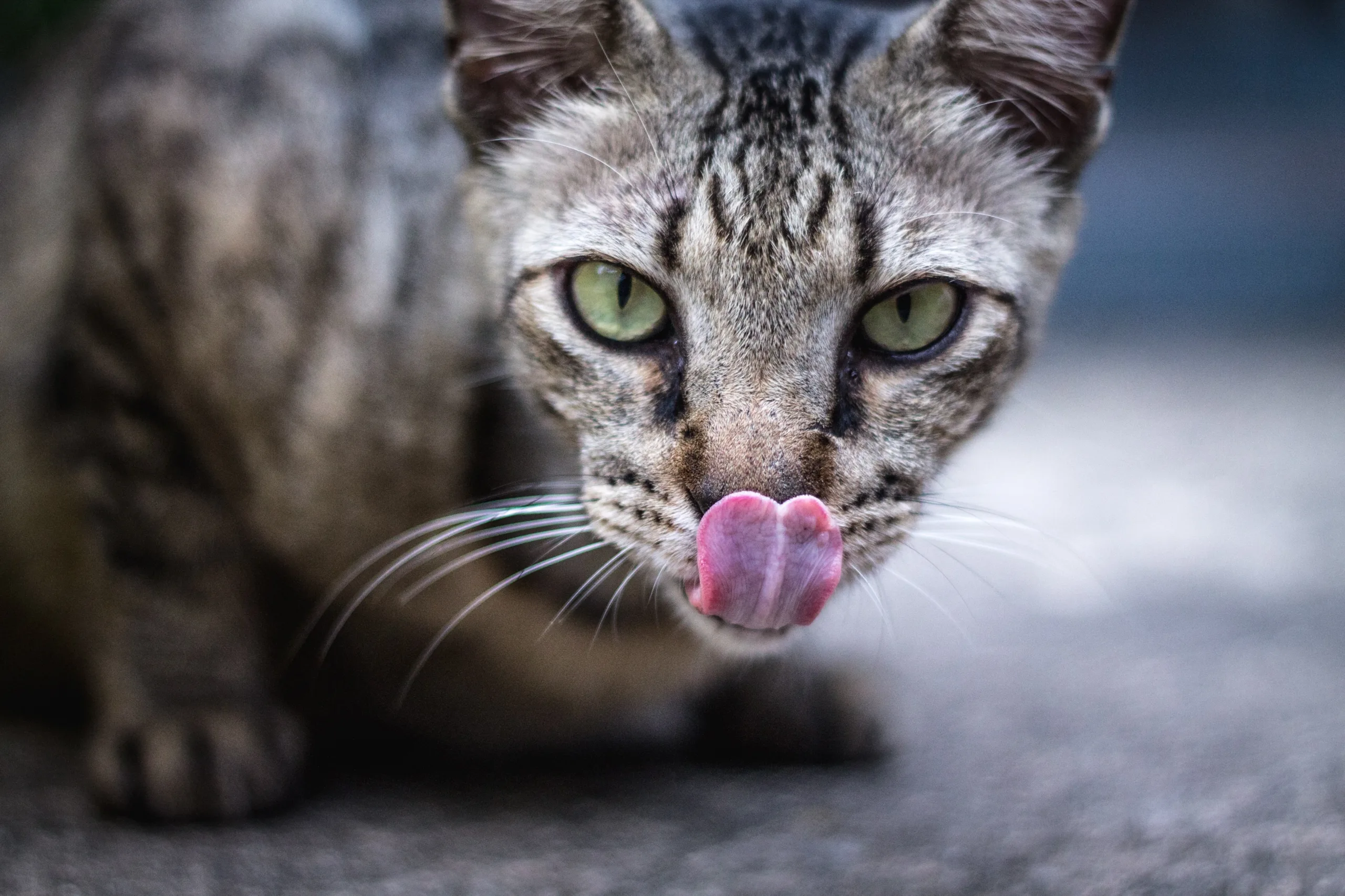Introduction:
As cat owners, we are often fascinated by our feline friends’ various behaviors, including the adorable act of licking their lips. Cats exhibit this behavior for a variety of reasons, and it can convey a range of emotions and messages. In this article, we will explore the common reasons why cats lick their lips, potential causes for excessive lip licking, whether it is a stress-related behavior, the significance of cats staring and licking their lips, and the implications of allowing cats to lick our mouths.
For more about cats click here
Common Reasons Why Cats Lick Their Lips:
- Grooming Behavior: Cats are meticulous groomers, and licking their lips is a natural part of their grooming routine.
- Taste and Smell: Licking their lips after eating or smelling something intriguing allows cats to savor flavors and scents.
- Feeling Anxious: Cats may lick their lips as a coping mechanism when they feel anxious or stressed.
- Communication: Licking their lips can be a way for cats to communicate with their owners, signaling hunger, affection, or attention.
- Medical Issues: Excessive lip licking can be a sign of medical problems, such as dental issues or gastrointestinal discomfort.
Why Is My Cat Licking His Lips So Much?
If your cat is excessively licking their lips, it’s essential to observe their behavior and consider potential causes:
- Medical Concerns: Dental problems, mouth sores, or gastrointestinal issues can lead to increased lip licking.
- Stress or Anxiety: Cats may engage in excessive lip licking when feeling stressed, anxious, or uncomfortable.
- Hunger or Thirst: Lip licking can be a signal of hunger or thirst in cats.
- Grooming Obsession: Some cats may develop a grooming obsession, leading to excessive lip licking.
Do Cats Lick Their Lips When Stressed?
Yes, cats may lick their lips as a stress-related behavior. When faced with unfamiliar environments, changes in routine, or perceived threats, cats may engage in lip licking as a way to cope with their anxiety.
Why Do Cats Stare at You and Lick Their Lips?
When a cat stares at you and licks their lips, it can be a form of communication or a signal of their emotions:
- Affection: They may stare at their owners as a sign of affection and lick their lips as a way to show their contentment.
- Hunger or Attention: Staring and lip licking can be a way for cats to communicate their desire for food or attention.
- Stress or Discomfort: If a cat stares and licks their lips while in an unfamiliar or stressful situation, it may indicate feelings of unease.
Is It OK to Let Your Cat Lick Your Mouth?
While some cat owners may allow their cats to lick their mouths, it’s essential to consider potential health risks. Cats can carry bacteria in their mouths, and their saliva may contain germs that could be harmful to humans. It is generally recommended to avoid letting your cat lick your mouth to prevent the transmission of bacteria.
FAQs:
1. Why is my cat licking his lips so much?
Excessive lip licking in cats can be caused by medical issues, stress, anxiety, hunger, or grooming obsessions.
2. Do cats lick their lips when stressed?
Yes, cats may lick their lips as a stress-related behavior, especially in unfamiliar or anxiety-inducing situations.
3. Why do cats stare at you and lick their lips?
Cats may stare and lick their lips to communicate affection, hunger, attention, or feelings of stress or discomfort.
4. Is it OK to let your cat lick your mouth?
It is generally recommended to avoid letting your cat lick your mouth to prevent potential transmission of bacteria.
Cats’ lip licking behavior can have various motivations, from grooming and taste exploration to communication and emotional expressions. While occasional lip licking is usually a normal and harmless behavior, excessive lip licking or sudden changes in behavior may warrant closer attention and potential veterinary evaluation. As cat owners, understanding our feline friends’ behavior can help strengthen our bond with them and ensure their overall well-being.
Click here for more
